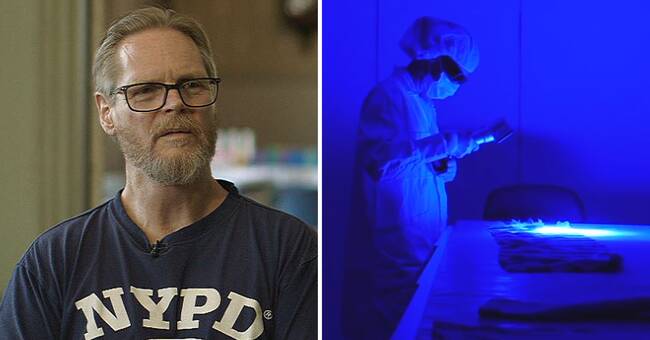- I get chills when I think about it, says the experienced forensic technician Björn Thurfors.
He has long been convinced: something is wrong - something that allows criminals to go free.
For several years, he has on his own initiative investigated how the National Forensic Center, NFC, handles DNA traces.
The result is in 40 folders in his house on Öland.
- The problem for me was that I did not believe in myself.
It has enormous consequences for the judiciary if they do not know about it.
Unknown in the judiciary
It was during a meeting with NFC that Björn Thurfors found out the detail that shocked him
He was told that they have a limit value, a stop for DNA samples: if the DNA content in, for example, a blood stain is below this limit, the NFC usually does no further analysis and the trace ends up in a freezer in the basement.
But police, prosecutors and defense attorneys are not informed of this.
The NFC's statements state: "DNA that can be compared to a person could not be detected".
The wording is used if the trace does not contain enough DNA - but also when the trace has not been fully analyzed.
Photo: From preliminary investigations
The reason why NFC does not report all analyzes separately is that it "would provide too extensive material for prosecutors and courts".
German study shows the opposite
NFC's own investigations show that there is "little or no chance of achieving a useful DNA result" below the limit.
But according to a German study, done on real crime scene tracks, it is possible to obtain useful DNA profiles in more than every third case that falls below the Swedish limit value.
Something that is confirmed by experts that SVT has spoken to.
In recent years, there have been approximately 25,000 tracks annually that have not been fully analyzed.
For over 20 years, NFC has had a limit value for DNA analyzes - which means that there are large amounts of incompletely analyzed traces in the freezer in the basement.
NFC: Selection required
In the case of serious offenses, NFC makes deeper analyzes and can then go below the limit value.
But Björn Thurfors and SVT have carefully gone through about 20 investigations of serious crimes and have in all of these found DNA traces that ended up below the limit and therefore not fully analyzed.
NFC's chief executive Helena Trolläng believes that NFC does not have the opportunity to analyze all the clues that the police send in.
- We receive 100,000 cases per year in different crime categories of different nature with very different complexity.
If we are to have any opportunity to actually respond to something that is useful, we need to make a selection together with the investigative activities, she says.

